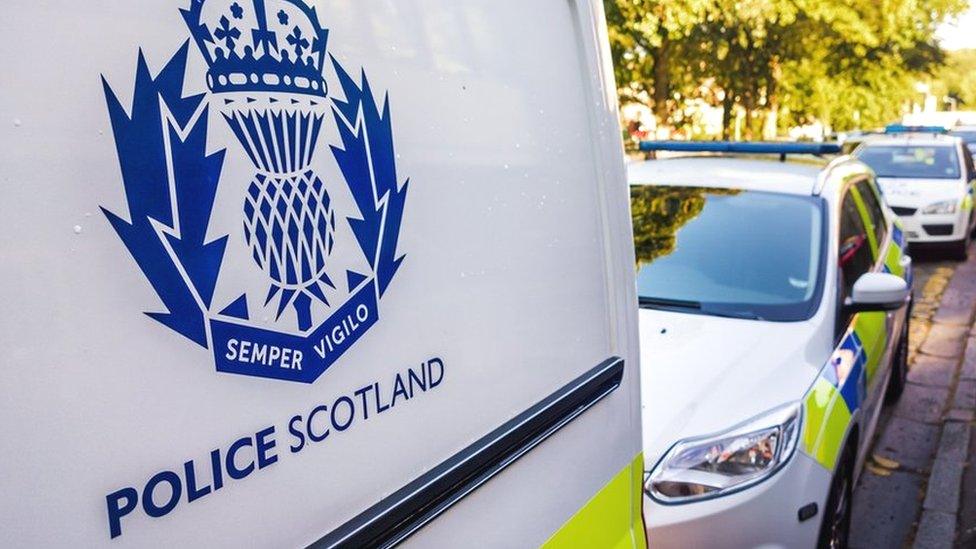Police Scotland draft Vietnam police to combat trafficking surge
- Published
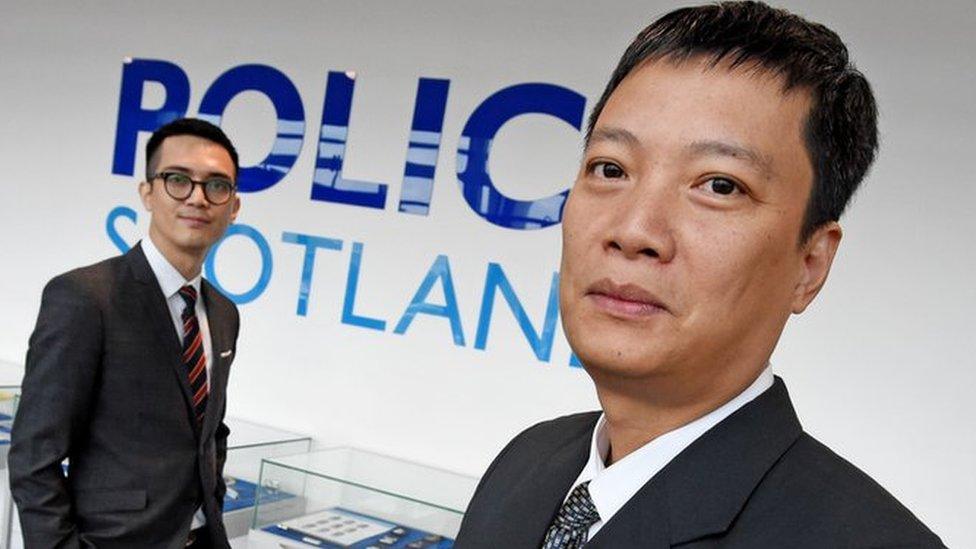
Officers Hiep Nguyen (left) and Duy Nguyen (right) from the Vietnamese Ministry of Public Security
Police Scotland have recruited two Vietnamese officers to tackle a rise in trafficking victims from the country.
Home Office figures show that 214 victims between the age of 15 and 35 arrived in Scotland from Vietnam last year alone - the figure was 66 in 2018.
Officers Hiep Nguyen and Duy Nguyen, from the Vietnamese Ministry of Public Security, arrived in Scotland at the start of October.
It is hoped they will provide "cultural advice" and language assistance.
On Thursday the University of Stirling published a study showing the majority of child trafficking victims in Scotland and the UK came from Vietnam - although the prevalence of the problem in Scotland appeared to be lower.
The research, external, commissioned by the Scottish government, called for a single body to be set up to monitor child trafficking to help identify and protect victims.
It comes after Police Scotland launched Operation Filibeg in April - a response to the 230% rise in Vietnamese trafficking victims in Scotland between 2018-19.
They are working with national and international law enforcement agencies to build a picture of the experience of victims and the network of criminals who exploit them.
How has Covid impacted trafficking?
Police intelligence suggests that victims are being forced into rural work because Covid has shut down many urban businesses where they were previously being exploited - such as building sites, restaurants and nail bars.
Agriculture, fisheries and food sectors were identified as at risk.
Asst Ch Con Judi Heaton said that while some victims were lured to Scotland by men using the "boyfriend ruse", the majority of people were "trapped".
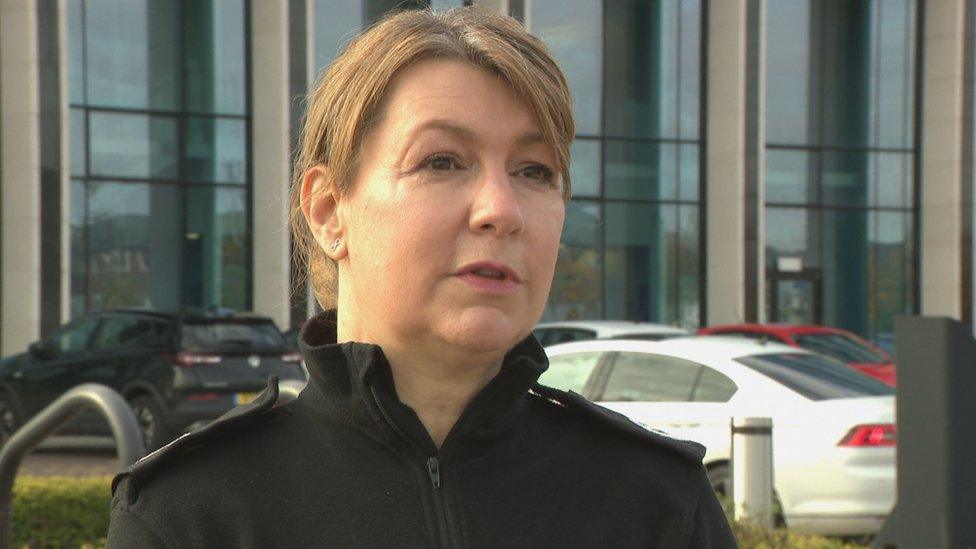
Asst Ch Con Judi Heaton said Vietnamese victims were forced into labour or sexual exploitation
"They are kept in squalid conditions, they are not allowed to communicate and they have no passport," she said.
"We do have quite a lot of Vietnamese people coming across here for a better life only to have their passports removed and forced into labour or sexual exploitation in brothels.
"There are other nationalities as well but Vietnamese is a key one at the moment.
"We are seeing some diversification into farming industries - fruit picking and things like that."
'Less than human'
Tara - a support service that works with women trafficking survivors - said that while trafficking is often considered a city problem, there is not a local authority in Scotland that has not referred cases to them.
Operations manager Bronagh Andrew said women are treated like "commodities" and that the organisation had also seen a surge in referrals from Vietnam.
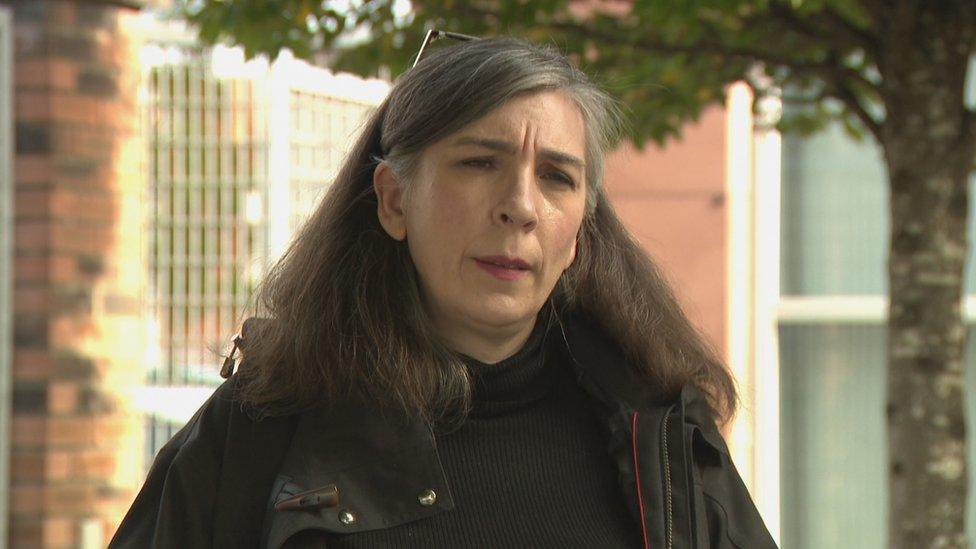
"We saw an increase in referrals from Vietnam across all types of exploitation - with adult and child potential victims," she said.
"Clearly there was something going in Scotland within that group of potential survivors. I think that's one of the reasons why there's a focus to try to understand better those pathways.
"They are treated as less than human - there's no recognition of women's choices, autonomy or human rights. They are there to generate profits for the perpetrators and the organised crime groups."
Justice Secretary Humza Yousaf said the Scottish government was committed to tackling the problem and that new partnerships should be "embraced".
He said: "I welcome officers from Vietnam working with Police Scotland as human trafficking does not respect borders and is a truly global issue.
"There is no place for human trafficking in our communities."
- Published11 October 2019
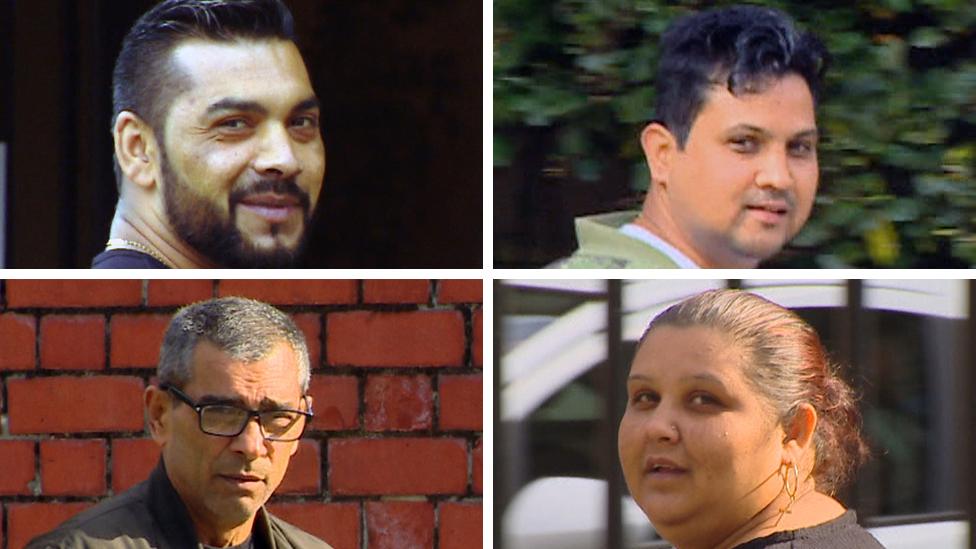
- Published9 September 2020
